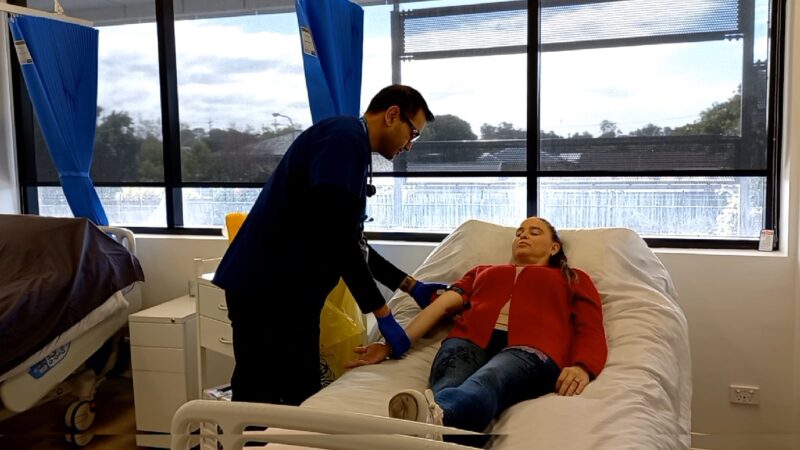HYPERTENSION AND THE GUT MICROBIOME: USING GUT MICROBES TO REDUCE BLOOD PRESSURE
Professor Francine Marques
Professor of Genetics and Genomics
Monash University, Victoria, Australia
RESEARCHER PROFILE (Filmed in Clayton, Victoria | December 2024)
Professor Francine Marques is an National Health and Medical Research Council Emerging Leader, Viertel Charitable Foundation, and National Heart Foundation Fellow.
She leads the Hypertension Research Laboratory at Monash University and has published more than 120 peer-reviewed papers in journals such as Nature Reviews Cardiology, Nature Medicine, Nature Cardiovascular Research, and Circulation.
As a researcher Professor Marques has secured over $10 million in competitive funding as a principal investigator. She has won 31 awards, including the 2019 American Heart Association Hypertension Council Goldblatt Award, the 2020 High Blood Pressure Research Council of Australia and 2021 International Society of Hypertension Mid-Career Awards, the 2021 Australian Academy of Science Gottschalk Medal, and the 2024 Australian Society of Medical Research Peter Doherty Leading Light Award, and was a finalist for 12 awards, including the Eureka Prize Emerging Leader in Science.
Her research team aims to build exceptional scientists that help improve cardiovascular health, using translational approaches to lower blood pressure via the gut microbiome. Professor Marques is also passionate about equity, diversity and inclusion (EDI) and helping communities change the current culture of research.
She has led research identifying intrinsic equity issues in the cardiovascular research community in Australia (https://pubmed.ncbi.nlm.nih.gov/32839116/), followed by research to find solutions for these issues (https://pubmed.ncbi.nlm.nih.gov/35577952/), resulting in the 2021 Women’s Agenda Emerging Leader in STEM award.
Outside work, Francine enjoys baking, travelling, spending time with family, friends and her dogs, and reading books.
You Might also like
-
Cellular interactions responsible for development, maintenance, and strength of the skeleton
Professor Sims directs the Bone Cell Biology and Disease Unit at St. Vincent’s Institute of Medical Research and is a Professorial Fellow at The University of Melbourne and Australian Catholic University.
She leads a team who studies the cellular interactions responsible for development, maintenance, and strength of the skeleton. She completed her PhD at the University of Adelaide, followed by postdoctoral work at the Garvan Institute in Sydney then at Yale School of Medicine, in New Haven, Connecticut, where she studied the role of the estrogen receptor in regulating bone structure.
-
Supportive care for people living with or beyond cancer treatment
Dr Hannah Wardill is a Hospital Research Foundation Fellow and lead of the Supportive Oncology Research Group (SORG), in the School of Biomedicine, University of Adelaide and Precision Cancer Medicine Theme, South Australian Health and Medical Research Institute (SAHMRI). She is an Executive Board Member of the Multinational Association for Supportive Care in Cancer / International Society for Oral Oncology (MASCC/ISOO) and Chair of both MASCC/ISOO Patient Partnership Committee & the Palliative Care Clinical Studies Collaborative (PaCCSC) Cancer Symptom Trials (Gut Dysfunction Node; supported by Cancer Australia).
-
Dr Nischal Sahai
RESEARCH IN BRAIN COMPUTER INTERFACE
@ SYNCHRON
MELBOURNE, VICTORIA, AUSTRALIA

 https://orcid.org/0000-0003-4920-9991
https://orcid.org/0000-0003-4920-9991


